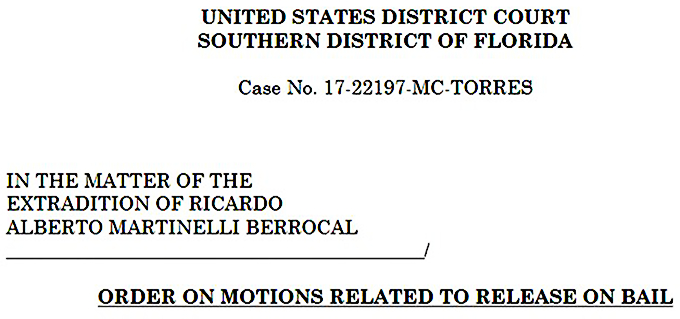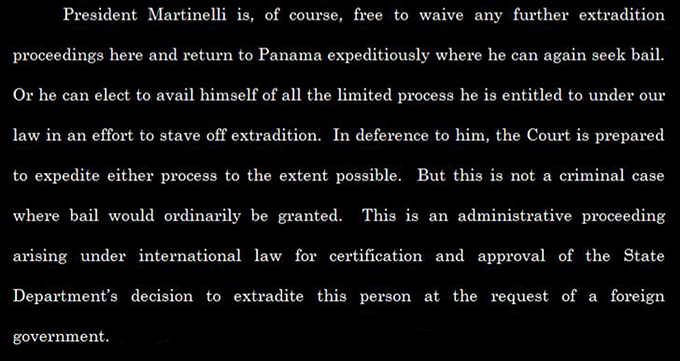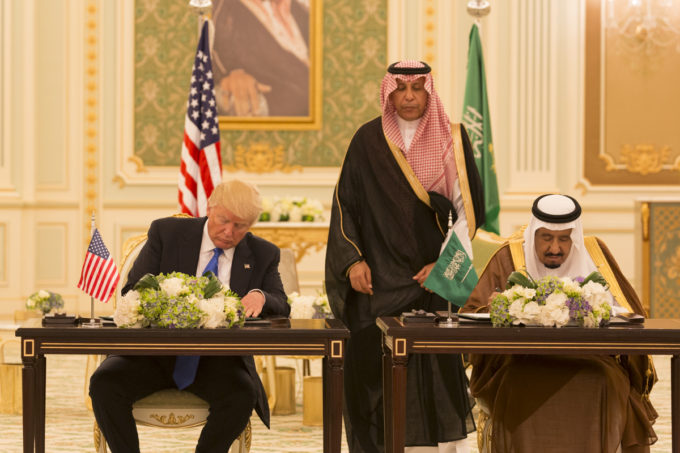
What Republicans are saying
~ ~ ~
These announcements are interactive. Click on them for more information.
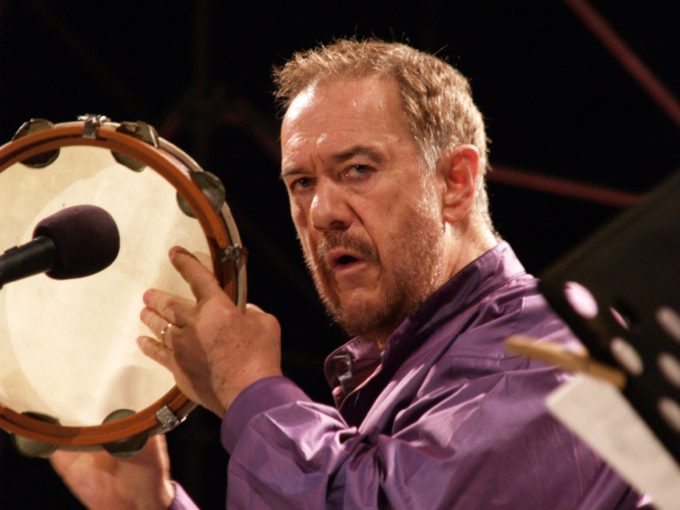
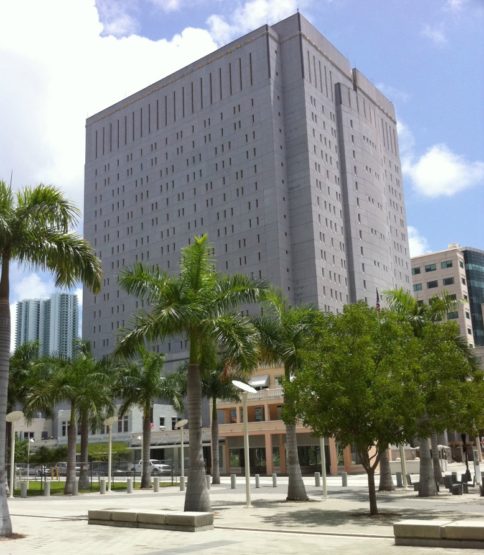
It’s a month since the incarceration of President Ricardo Martinelli (2009-2014) in Miami. Martinelli is not alone in his cell at the Federal Detention Center in Miami. Along with him are the consciences of the Panamanian rulers of the last 25 years. The difference between the former president and his counterparts is a question of degree. Martinelli, according to his friends, celebrated with great fanfare the day he announced that he was a “billionaire.”
Martinelli is in detention awaiting the order of an extradition trial requested by the Panamanian authorities. Documents were presented to the US government that involved Martinelli in tapping the telephones of his political opponents while he was ruling.
If the judge rules that Martinelli must return to Panama to face justice, his expulsion is not automatic. The US president and his secretary of state have the last word. If they consider that it is not convenient — for reasons of “national security” — then they can dismiss the verdict of justice and Martinelli stays in the United States. There has been an extradition agreement between the two countries since 1904.
Politics prevail over justice. How likely is it that President Trump would decide to ignore a court decision contrary to Martinelli’s interests? Not much chance.
Martinelli is the epitome of Panamanian society in the 21st century. Without doubt, it is a society that should radically change. After the American military invasion of 1989, the defeat of the national project created the conditions for an oligarchy to seize the state apparatuses. Under the mantle of the “Washington Consensus” and with the guidance of the US Embassy, the government machinery at the service of its enrichment. The oligarchs privatized the most profitable public enterprises, eliminated jobs and reduced wages, increased subsidies for the rich, and abandoned the education system, health services, and public safety.
In 2000, the Panamanian government assumed the administration of the Panama Canal. This has been a source of previously unimaginable income. At this juncture, Martinelli proved his political fate in the government allying himself with the Panameñista Party, having previously served in a Democratic Revolutionary Party (PRD) administration. The experience served to found his own party — Democratic Change (CD) — and to launch his candidacy in 2004, which was unsuccessful. Like the other oligarchic parties, its only objective was to arrive at the political power to assault the public coffers.
In 2009 Martinelli returned to throw his hat in the ring. With the open intervention of the US Embassy, he had better luck. His alliance with the Panameñistas gave him the victory. With growth rates of the Gross Domestic Product on the average of about eight percent a year, the Martinelli team put its hands to work. It appears that there was no governmental initiative that was not turned into a business.
To neutralize the political opposition, from the Presidential Palace he asked the US Embassy to tap the phones of his enemies. The requests were documented in electronic cables that WikiLeaks published, along with other materials that exposed the American Embassy’s interference.
Now his fate depends on the decision of a judge in Miami? Is there sufficient evidence to order his handover to Panamanian authorities?
Justice is not “blind” in the USA. There are many political interests, including economic ones, that are in play. The American prosecutors have gathered evidence that associates Martinelli with crimes that can be prosecuted in the United States. If Washington is interested in using Martinelli as a piece for some political move, they can accuse him and bring him to trial in that country. The longer the decision by the South Florida federal judge to extradite him is delayed, the more time US prosecutors have to file a case against the former Panamanian president.
Martinelli has a political card that he might play as the result of his incarceration in the United States. The supermarket magnate has announced that he will try to come back to Panama to run for mayor of the capital city in 2019. That candidacy would serve as a trampoline for his to compete in the 2024 elections for president of the republic.
His adventure in Florida can be used to present himself as a victim of low blows suffered in the USA and shock the voters with his version of the injustices he saw in the “entrails of the monster,” so that he could win.
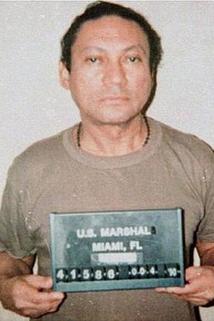
The readers should know that precedent plays a much larger role in the Anglo-American Common Law systems of justice than it does in the Civil Code systems that derive from Roman Law via the Napoleonic Code. US law, with some exceptions in Louisiana and the US colony of Puerto Rico, is of the Common Law tradition, deriving from a legal system developed case by case in an England with no written constitution as such. Panamanian law, of the Civil Code lineage, takes little heed of previous cases and instead concentrates on the letter of written laws, informed by certain maxims and rules of interpretation.
Extradition, that’s a matter of international law, in the case of one Ricardo Martinelli Berrocal an intersection of Common Law and Civil Code jurisdictions, governed above all by written treaties but also by the customary law of nations. One of the important customary values of international law and relations is reciprocity.
Can we talk of reciprocity between the United States and a nation with a population barely one percent the size of its own? Can we talk about reciprocity between a country whose military forces operate on Panamanian soil and seas, and in our air space, with notwithstanding agreements formally mutual there is no such Panamanian presence in the United States? Is any such discussion relevant given a narcissistic rich kid bully who is clueless to the world of diplomacy occupying the White House?
Although Mr. Trump may be offended at the suggestion that it may be so, there are adults on the scene, in the other branches of government and in the bureaucracy of his own, who matter in the American scheme of things. Judges — even those with surnames like Torres — make decisions that matter, frequently without regard to what presidents may wish them to do. In any case, as the US State Department approved the move toward extraditing Martinelli to Panama, it would probably be erroneous to presume that Trump doesn’t want to rid the United States of the former Panamanian president. As much as reciprocity appears not to have any role in the motives of Mr. Trump’s personal behavior, he probably has his other reasons in the extradition case at hand.
For Judge Edwin G. Torres, the federal magistrate presiding over Martinelli’s extradition trial in a Miami courtroom, it should matter. Reciprocity is both a form of precedent and principle of international law. To the Republic of Panama, notwithstanding the rampant suppression, ignorance and falsification of our history, reciprocity is a basic requirement of national dignity.
The precedent is that US courts don’t care how a defendant is brought before them. US authorities have kidnapped people, in plain violation of the laws of other countries, to snatch drug defendants from their foreign refuges and bring them before US courts. US authorities have used perjury before foreign courts to get people extradited to the United States. Not the court’s concern has always been the response to defendants brought in by such and similar means.
At the moment there is speculation that, as arguably in the case of Noriega’s extradition from France, Judge Torres may condition a Martinelli extradition on a stipulation that there would be no trial for our former president save on the wiretapping charges on which the extradition request is premised. But that uncontested extradition from France was had under Franco-Panamanian treaties and customs. Noriega’s transfer back to here included a controversial and later moot agreement that the former strongman would serve an outstanding sentence and face then-outstanding charges, but not face trial for other crimes.
For Martinelli, if such conditions were imposed and respected, it could mean no trial on the illegal pardon not only for cops shooting innocent people but also for them planting false evidence on their victims. No further investigation of the computer crimes of which the list of 150 “most hated” people whose phone calls and email were monitored and whose cell phones were turned into room bugs were only a part. No trial for all of the overpriced public contracts with kickbacks. No Odebrecht cases. No further investigation of the Vernon Ramos disappearance if evidence points to the involvement of one of its principal beneficiaries, Ricardo Martinelli Berrocal. None of that. None of the other cases pending before the high court, none of the cases which ought to be brought. Or so the speculation goes.
But Manuel Antonio Noriega was brought to the United States from Panama in clear violation of the Panamanian constitution, which bars the extradition of citizens to other countries. We can argue about whether that’s a good law, but there it is, and there it long has been.
The reciprocity, and customary practices, which matter in this case are the standards that US courts have applied to Panamanians brought before them by irregular means. In those cases there have been no limits other than facts, US laws and American public policies on the matters for which the defendants might be investigated or tried. Panama never received any assurances.
Were Judge Torres to take a wise long view at US relations with the rest of the world, he would turn down any suggestion that Martinelli’s extradition should bar investigation or prosecution for any of his many other serious crimes. For him to favor Martinelli with any such extraterritorial court-imposed limitation would violate the bedrock US principle of equal justice under the law.
But what if the court in Miami does extradite Martinelli with such restrictions on his further prosecution? Then Panama should assert reciprocity. Under that principle it should not matter how Martinelli comes into custody here — once he is in custody here, he is subject to full Panamanian jurisdiction in all cases in which it can be reasonably shown that he probably violated Panamanian laws. “But it’s illegal — under the US court ruling…” would merit the reciprocal response that such objections are not the court’s concern.
CORRECTION: An earlier version of this story confused Federal Magistrate Edwin G. Torres, a Bolivian-born judge in Miami, with Judge Edwin Torres, a New York judge of Puerto Rican ancestry and author of “Carlito’s Way.”
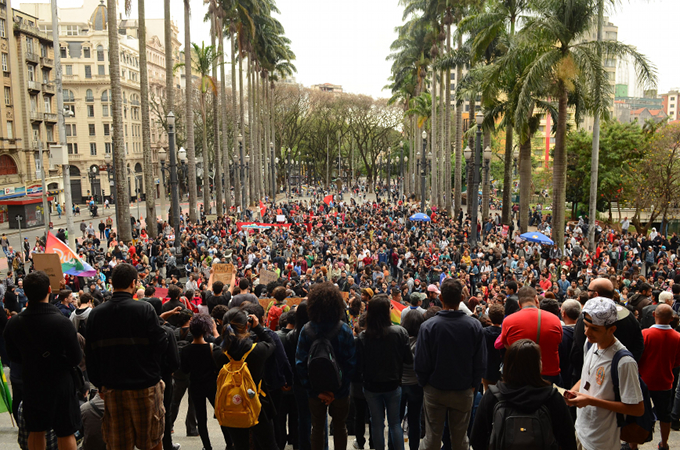
We live in times of great social unrest. There has been a kind of earthquake, provoked not by nature, but by politics.
There was a coup d’état by the moneyed class, their privileges threatened by the beneficiaries of the social policies of the governments of the Labor Party, PT, (from the Portuguese, Partido dos Trabalhadores, PT), that lifted them to places from which they had been excluded before. To that end, they used the parliament, as the military had done in 1964. The removal of President Dilma Rousseff, democratically elected, served the ends of these economic elites (0.05% of the population, according to the Institute of Applied Economic Research, IPEA, (from the Portuguese, Instituto de Pesquisa e Economia Aplicada), allowing them control of the apparatus of the state, thus guaranteeing their historic-social status based on privilege and dirty business. Having made corruption seem natural, they had no scruples about amending the constitution and introducing reforms that eliminated workers’ rights, and profoundly modified Social Security benefits.
Corruption, first detected by the intelligence branches of the United States, and passed on to our judicial system, enabled the installation of a judicial process called Lava Jato. There an unimaginable scheme of corruption was detected, involving large enterprises, both of the state and private enterprises, their funds and other organs, under the logic of inheritance. The corruption identified was of such a magnitude that it scandalized the world. It caused the bankruptcy of states of the federation, such as, for example, Rio de Janeiro.
Many, including myself, have not received our salaries as university professors, retired or not, since December, 2016.
The result is a political, judicial and institutional disaster. It would be deceitful to say that the institutions are functioning. Every institution is contaminated by corruption. Justice is shamefully biased, especially Justice Sergio Moro and much of the Public Ministry, backed by a reactionary press with no commitment to the truth. This “justice” openly carries on a furious and contemptible persecution against former President Inacio Lula and his political party, the Labor Party, PT, the largest in the country. They want to destroy his unquestionable leadership, defame his biography and in any way possible, keep him from becoming a candidate. They push his prosecution, grounded more on political convictions that actual evidence, in order to impede his candidacy, which is preferred by the majority.
The consequence is a painful lack of hope. But it is important to retake the politically transforming character of hope. Ernst Bloch, the great philosopher of hope, talks of the hope-principle, which is more than the common virtue of hope. It is the impulse that lives within us, that always moves us, that projects dreams and utopias, and from failure, finds reasons for resistance and struggle.
From Saint Augustine, perhaps the greatest Christian genius, a great inventor of phrases, comes this sentence: hope has two beloved daughters: Indignation and Courage; Indignation teaches us to reject things as they are, and Courage inspires us to change them.
At this moment we first must evoke the daughter Indignation: facing what the Temer government is criminally perpetrating against the people, the indigenous, the small farmers, women, the workers and the elderly — taking away their rights and lowering millions of Brazilians from poverty into abject misery. Not even national sovereignty is safe, because the Temer government is allowing the sale of national lands to foreigners.
If the government offends the people, the people has the right to invoke daughter-Indignation, not giving the government peace, but demanding in the streets and squares that it be removed, because it is already being accused of criminal corruption and is the result of a coup, and for that reason, lacks legitimacy.
Daughter Courage is seen in the movement for change, even though the confrontations could be dangerous. Courage keeps our spirits high, sustains us in the struggle and can lead us to victory. It is important to follow the advice of Don Quixote: “Do not accept defeat if the last battle has not yet been fought.”
A fact that we must always keep in mind is that reality is not only what is visible, like something we can reach out and touch. What is real is more than the things that we can see. The real carries within itself hidden potentialities and possibilities that can be brought out and become new facts.
One of these possibilities is that of invoking the first article of the constitution that says: “All power comes from the people.” Government and politicians are only delegates of the people. When they betray the people, they no longer represent the general interest, but the interests of the enterprises that finance their elections. The people has the right to remove them from power quickly, through direct elections.
“Temer out and direct elections now” is not a slogan just of groups, but of great multitudes. Daughter Courage must demand this option as our right, the only one that will guarantee authority and credibility to a government capable of leading us out of the present crisis.
The two daughters of hope could make their own this phrase of Albert Camus: “In the middle of winter I discovered there was, within me, an invincible summer.”
Leonardo Boff is a Brazilian theologian and philosopher, and a member of the Earthcharter Commission.
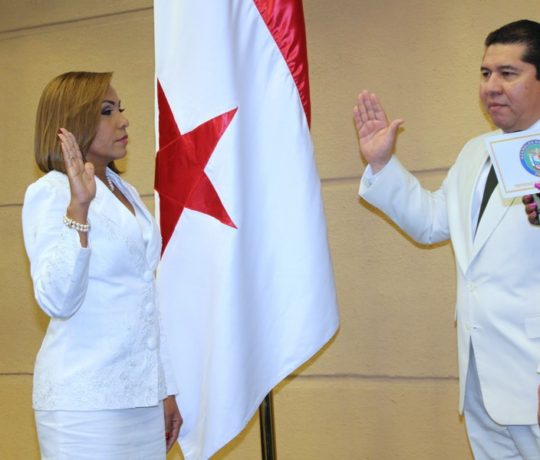
Consider what the selection of Yanibel Ábrego as president of the National Assembly has done to the three main political parties.
President Varela’s Panameñista Party has this historical jinx anyway — after five years in office the voters here tend to conclude that it’s long enough at the trough and time to go with another batch of politicians. Ábrego notoriously has enriched herself by acquiring public lands and nominal prices while in public office. Now, when corruption is the main issue about which politicians can have any real say — garden variety crime and the cost of living are higher on voters’ minds but political posturing greatly exceeds what anyone can really do about these things — Mr. Varela’s party has taken a pro-corruption stand.
The fragmented PRD is moving toward disciplinary action against those deputies who defied the party line and went with Ábrego. This nastiness may help get the party in order for elections coming in less than two years, but probably not. They are fighting over authority personalities and political patronage plums, rather than taking stands for anything in particular. It’s a malady like the Clintons’ Democratic Leadership Council, Tony Blair’s New Labour and splits like those that affect most of the member parties of the Socialist International, to which the PRD also belongs. Might there be a charismatic leader who arises, picks up the shards of General Torrijos’s party and leads a movement that takes the presidential palace in 2019? Perhaps. But that candidate would have to be seen as coming from out of the blue, not from out of the apparatus.
Ricardo Martinelli’s Cambio Democratico party is disintegrating, even if one of its dissident members now runs the National Assembly. Look for CD to be replaced by a constellation of minor parties in the 2019 elections, whatever Ricardo Martinelli’s legal fate might be. None of those seeking the party’s presidential nomination have the credibility to register more than single digits at the polls.
We fast approach the time for independents and new forces to make their moves. Were a well known person to declare at the last moment and get elected president, she or he would have a very difficult time governing. The way around such a crisis, the convening of a constituent assembly to write a new constitution, would be all the more difficult without a movement capable of winning the elections for delegates and presenting the nation with a coherent framework on which to rebuild our broken political system.
Panama’s Chamber of Commerce, Industry and Agriculture (the CCIAP) held some joint meetings with the National Council of Private Enterprise (CONEP) and members of the diplomatic corps. They heard from a Guatemalan television anchor who has a political science degree, and felt inspired to issue a declaration.
The new battle cry of oligarchs everywhere is against “populism.” They tell us that Donald Trump and Bernie Sanders are the same thing as Marine Le Pen and Nicolás Maduro. They hold up governments like those of France and Guatemala, and institutions like Goldman Sachs and the World Bank, as the examples to emulate. Arguments do get ridiculous when the purpose is to defend the untenable.
Ricardo Martinelli was one of the more recent of a long string of failures in which men from the world of business conned voters into electing them to run the government like a business. It’s always a fraud. That pitch always means to run government for the benefit of a few specific businesses.
The anti-populists are against the government giving gifts. By this they don’t mean politicians handing out bags of groceries or other valuables in exchange for votes. What they oppose are properly funded public education, a sound public health care system, a solid public pension system and a social safety net.
They are for “judicial security” that freezes existing privileges into place, a privatized economy and an end to government regulation of businesses. Otherwise, they warn us, there will be chaos on the streets like in Venezuela.
Should we take this as a threat? Probably not in the sense of a serious offer of violence. As a set of public policies that could lead to a social explosion, perhaps. Mainly it’s a whiny infantile wish list from a sector of society that has had its way most of the time and has had little to show for it.
Let us not, however, look at Panamanian business as a monolith. CONEP represents bigger companies, usually those that do business with and are dependent upon the government. The CCIAP represents a much broader section of the private sector, but generally owners rather than managers. The great majority of business owners, the huge informal micro-enterprise sector, is excluded and treated with disdain. Those who manage many of the businesses that are in the CCIAP or CONEP tend to have different perspectives. A poorly educated and inefficient work force, generalized corruption seeping into their companies, seething social resentments that can be ignited into costly business disruptions — if you inherited some company that has cornered some tiny part of the market you may not care but if you manage a company that has to compete in the world these are vital concerns.
If by populism its critics mean demagoguery, they may have a point. Beware the politician who promises something for nothing, or something to be paid for by some sector in society that is widely despised. But after all these years, those selling the promise that globalization on corporate terms means prosperity for more than a tiny sliver of society are perhaps the worst demagogues of all.
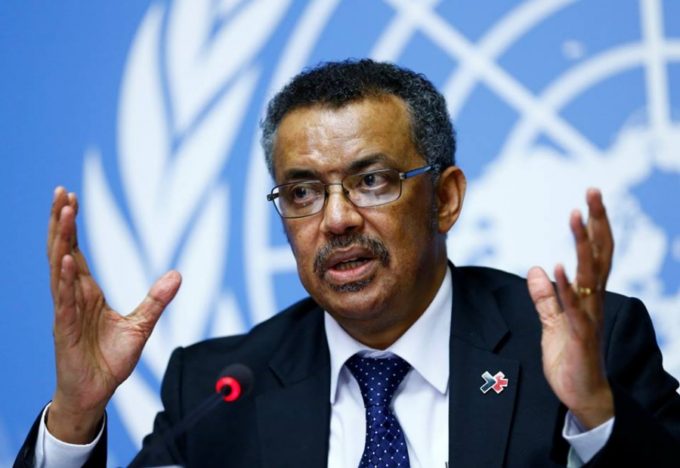
It’s really a great privilege for me to be with you today to discuss the critical health threats facing our world today. And I thank you, Chancellor Merkel for your leadership in putting health on the G20 agenda and for the successful emergency simulation exercise which we have seen with health ministers in Berlin in May.
I think the exercise, as has been said, highlighted two major things among others: number one is that pandemics of infectious diseases and other threats to health, such as anti-microbial resistance, transcend borders and national interests, so vulnerability for one is vulnerability for all of us. And viruses actually do not know or do not respect borders.
And the second thing from the exercise that we found out is that we are not well prepared. That we are very often reactive rather than proactive. Therefore we require a strong global response — that we need to remain connected in our inter-connected world.
The reason we ask you to support global health is because we want to support you, you the leaders, to achieve your goals. Because pandemics, health emergencies and weak health systems not only cost lives but represent some of the greatest risks to the global economy and security that we face today.
And we know what happened as has been said with Spanish flu in 1918: more than 50 million people died.
And the SARS outbreak cost the world economy around $60 billion in US dollars.
We have seen bird flu, MERS, Zika. Now. Cholera, Yellow Fever are back in force. WHO detects around 3,000 signals a month but the world actually knows very few of them.
We do not know where the next global pandemic will occur, we don’t know when it will occur, but it will be costly in lives and dollars. With airline travel (three billion travelers every year) global spread of any new pathogen would occur in hours. As well as untold human suffering, the economic losses would be measured in trillions, including the losses of tourism, trade, consumer confidence and also including political problems and challenges. There will be two epidemics — one caused by the virus, and the other one caused by fear.
During the Ebola outbreak of 2014 in West Africa, WHO and the global community had to confront a tough reality that had left the world unprepared-what Jim Kim, the President of the World Bank calls the cycle of panic and neglect. At the height of outbreaks, we are galvanized but we quickly lose focus. Our world cannot afford this vicious cycle to continue.
The Ebola outbreak has also taught us another lesson. Our global system is only as strong as its weakest link. We must address the root causes of this problem: the lack of access of the most vulnerable people to health care, especially primary health care.
Universal health coverage and health security are the two sides of the same coin. This year, 400 million people — that is one out of 17 — mostly poor people, women and children, around the world remain without access to health care. Strong health systems will not only be our best defense but will also be critical for attaining the Sustainable Development Goals.
So we propose four ways forward which we actually all know.
Number one is sustainably financing the global health security system to prevent, detect and respond to emerging threats, whether natural or man-made. Ensuring a guaranteed level of contingency financing for outbreaks and emergencies would be a great start.
And the second is mapping all the capacities we have can help us to move forward, mapping all capacities in countries and use them in a coordinated manner, based on their comparative advantage to strengthen preparedness.
And the third recommendation is to support the goal of Universal Health Coverage in line with the Sustainable Development Goals. This is the strategic solution actually, to prevent epidemics and provide quality care to our people by strengthening health systems of countries, especially in the most fragile and vulnerable parts of our world.
And number four, prioritize research and development of new medical counter-measures through the Research and Development Blueprint of the World Health Organization. WHO strongly supports the German proposal to establish the Global Collaboration Hub on Antimicrobial resistance research and development.
Delivering on these priorities will cost money but only a fraction of what remaining unprepared will cost.
WHO is prepared to fully play its leadership role. And together we need to take the responsibility of making the world a healthier and safer place. It’s possible and it’s in our hands.
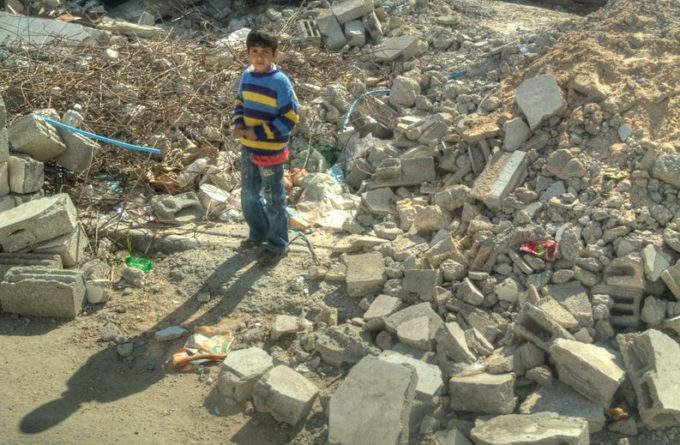
I have a unique confession to make: I like Gaza.
Yes, I like this far-away corner of Palestine, the narrow strip on the way to Egypt, in which two million human beings are crowded, and which is closer to hell than to heaven.
My heart goes out to them.
I have spent quite a lot of time in the Strip. Once or twice I stayed there with Rachel for a couple of days. I became friendly with some people whom I admired, people like Dr. Haidar Abd-al-Shafi, the leftist doctor who set up the Gazan health system, and Rashad al-Shawa, the former Mayor, an aristocrat from birth.
After the Oslo agreement, when Yasser Arafat came back to the country and set up his office in Gaza, I met him there many times. I brought to him groups of Israelis. On his first day there he sat me on the dais next to him. A photo of that occasion now looks like science fiction.
I even came to know the Hamas people. Before Oslo, when Yitzhak Rabin deported 415 Islamic activists from the country, I took part in setting up protest tents opposite his office. We lived there together, Jews, Christians and Muslims, and there Gush Shalom was born. After a year, when the deportees were allowed back, I was invited to a public reception for them in Gaza and found myself speaking to hundreds of bearded faces. Among them were some of today’s Hamas leaders.
Therefore I cannot treat the inhabitants of the Gaza Strip as a faceless gray mass of people. I couldn’t stop thinking about them during last week’s terrible heat wave, about the people languishing in awful conditions, without electricity and air conditioning, without clean water, without medicines for the sick. I thought about those living in the houses severely damaged in the last wars and not repaired since. About the men and women, the old, the children, the toddlers, the babies.
My heart was bleeding, and was asking who was to blame.
Yes, who is to blame for this ongoing atrocity?
According to the Israelis, “the Palestinians themselves are to blame.” Fact: the Palestinian leadership in Ramallah has decided to reduce the electricity supply to Gaza from three hours a day to two. (The electricity is supplied by Israel and paid for by the Palestinian Authority in Ramallah.)
This seems to be true. The conflict between the Palestinian Authority, ruled by Fatah, and the Palestinian leadership in Gaza, ruled by Hamas, has come to an ugly climax.
The uninvolved bystander wonders: how can that be? After all, the entire Palestinian people are in existential danger. The Israeli government tyrannizes all Palestinians, both in the West Bank and in the Gaza Strip. It keeps the Strip under a strangling blockade, on land, in the sea and in the air, and is setting up settlements all over the West Bank, to drive the population out.
In this desperate situation, how can the Palestinians fight each other, to the obvious delight of the occupation authorities?
That is terrible, but, sadly, not unique. On the contrary, in almost all liberation struggles, something similar has happened. During the Irish struggle for independence, the freedom fighters fought against each other and even shot each other. During our own struggle for statehood, the Haganah underground turned Irgun fighters over to the British police, who tortured them, and later shot up a ship bringing recruits and arms to the Irgun.
But these and many other examples do not justify what is happening now in Gaza. The struggle between Fatah and Hamas on the backs of two million people condemns these to inhuman living conditions.
As an old friend of the Palestinian people in their fight for liberation, I am deeply saddened.
But there are more partners to the atrocious blockade on Gaza.
Israel can blockade the Strip only on three sides. The fourth side is the Egyptian border. Egypt, which has in the past fought four major wars against Israel on behalf of the Palestinian brothers (in one of which I was wounded by an Egyptian machine-gunner) is now participating in the cruel blockade on the Strip.
What has happened? How did it happen?
Everyone who knows the Egyptian people knows that it is one of the most attractive peoples on earth. A very proud people. A people full of humor even in the most trying circumstances. Several times I have heard in Egypt phrases like: “We do not like the Palestinians very much, but they are our poor cousins, and we cannot abandon them under any circumstances!”
And here they are, not only abandoning, but cooperating with the cruel occupation.
All this why? Because the local rulers in Gaza are religious fanatics, just like the Muslim Brothers in Egypt who are the deadly enemies of today’s Pharaoh, General Abd-al-Fatah al-Sisi. Because of this enmity, millions in Gaza are punished.
Now rumor has it that Egypt would relent, if the Gazans accept an Egyptian stooge as their ruler.
The Israeli blockade of Gaza is completely dependent on the Egyptian blockade. Proud Egypt, which claims to be the leader the entire Arab World, has become the handmaiden of the Israeli occupation.
Who would have believed it?.
But the main responsibility for the atrocity in Gaza falls, of course, on us, on Israel.
We are the occupiers — a novel type of occupation by blockade.
The justification is clear: They want to destroy us. That is the official doctrine of Hamas. The mouse hurls terrible threats against the elephant.
True. But…
But like all religious people, they find a hundred different ways to cheat God and get around His prohibitions.
Hamas has declared that if Mahmood Abbas made peace with Israel, and if the Palestinian people confirmed the peace by plebiscite, Hamas would accept it.
Also, Islam allows for a Hudna (armistice) with infidels for any length of time — 10, 50, 100 years. After that, Allah is great.
In many hidden ways, Israel does cooperate with Hamas, especially against the even more extreme Islamists in the Strip. We could easily reach a modus vivendi all along the line.
So why must the people in Gaza suffer so grievously? No one really knows. Because of the mental laziness of the occupation. Because that’s what we are used to doing.
Here is a mental exercise: What if we did the very opposite?
What if we announced to the people in the Gaza Strip: the Palestinian Authority in Ramallah is now paying for only two hours of electricity a day. But seeing your suffering, Israel has decided to provide you with electricity for 24 hours for free.
What would be the effect? How would Hamas react? How would it affect the level of violence and security costs?
For the long run, there are many Israeli and international plans. An artificial island in the Mediterranean opposite Gaza. An airport on the island. A deep-sea port. Peace in fact, even without declarations.
I believe that this is the wisest way to proceed. But wisdom has little chance.
In the meantime, the atrocity goes on. Two million human beings suffer inhuman treatment.
And the world? Alas. the world is busy. It has no eyes for Gaza. Better not to think about that awful place.
 The worst crimes that Martinelli ordered will never be considered by the courts.
The worst crimes that Martinelli ordered will never be considered by the courts.
